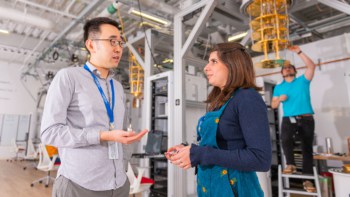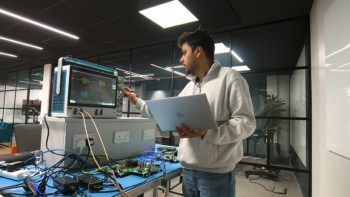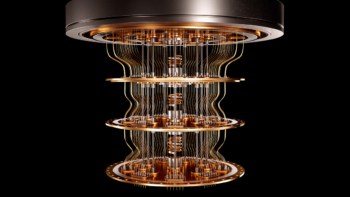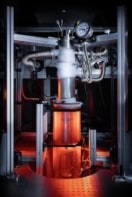
Researchers at the Dutch quantum institute QuTech in Delft have announced plans to build Europe’s first 100-quantum bit (qubit) quantum computer. When complete in 2026, the device will be made publicly available, providing scientists with a tool for quantum calculations and simulations.
The project is funded by the Dutch umbrella organization Quantum Delta NL via the European OpenSuperQPlus initiative, which has 28 partners from 10 countries. Part of the 10-year, €1bn European Quantum Flagship programme, OpenSuperQPlus aims to build a 100-qubit superconducting quantum processor as a stepping stone to an eventual 1000-qubit European quantum computer.
QuTech was set up in 2015 by Delft University of Technology (TUD) and the Netherlands Organisation for Applied Scientific Research (TNO). It has spawned numerous spin-off firms, with the chips being developed by QuantWare, cyogenic cabling from Delft Circuits, control software from Qblox, and software from Orange Quantum Systems. TNO will work on the web interfaces and TUD will integrate the various systems.

MEPs call for ‘urgent action’ to implement post-quantum encryption standards
Quantum Delta NL says the 100-qubit quantum computer will be made publicly available via a cloud platform as an extension of the existing platform Quantum Inspire that first came online in 2020. It currently includes a two-qubit processor of spin qubits in silicon, as well as a five-qubit processor based on superconducting qubits.
Quantum Inspire is currently focused on training and education but the upgrade to 100 qubits is expected to allow research into quantum computing. Lead researcher from QuTech Leonardo DiCarlo believes the R&D cycle has “come full circle”, where academic research first enabled spin-off companies to grow and now their products are being used to accelerate academic research.



